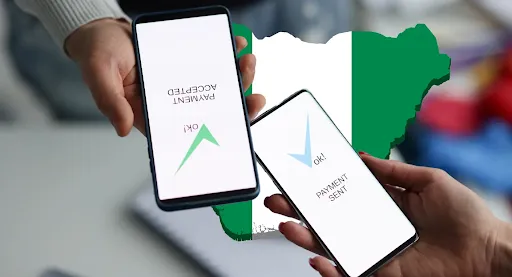A Simple Guide to Starting a Money Transfer Business in Nigeria (2026)
Nigeria is one of the largest remittance markets in Africa, with millions of dollars flowing in and out of the country daily. Countries like the United States, the United Kingdom, Canada, South Africa, and the United Arab Emirates contribute significantly to the remittance flow into Nigeria, as many Nigerians live and work abroad.
Whether it's businesses sending payments internationally or individuals transferring money to loved ones in Ghana, Kenya, India, or China, the money transfer industry presents a huge business opportunity in 2026.
If you're considering starting a money transfer business in Nigeria, this guide will walk you through everything you need to know - from regulations and licensing to choosing the right technology and marketing strategies.
1. Why Start a Money Transfer Business in Nigeria?
Nigeria has a huge demand for remittance services, making it one of the best places to launch a money transfer app or instant money transfer service. Here’s why:
- High Remittance Inflow: Nigeria received over $24 billion in remittances in 2019, and this figure is expected to reach $35 billion by 2026.
- Growing Fintech Sector: Nigeria’s fintech startups raised over $117 million in investments in 2018, indicating a strong future for digital money transfers.
- Expanding Global Connections: More than 1.3 million Nigerians live abroad, sending money home regularly.
- Informal Market Opportunity: About 50% of remittances still flow through informal channels, creating a huge market gap.
- Rise of Digital Transactions: The COVID-19 pandemic accelerated the shift towards digital payments, making cash transactions less favorable.
With the right business model, compliance strategy, and marketing approach, you can build a highly profitable money transfer business.
2. Understanding the Legal and Regulatory Requirements
Before starting a money transfer business in Nigeria, you must register your company and obtain the necessary licenses from the Central Bank of Nigeria (CBN).
Registering Your Business
To operate legally, register your company with the Corporate Affairs Commission (CAC) and obtain a Tax Identification Number (TIN) from the Federal Inland Revenue Service (FIRS).
Licensing Options
The CBN offers four types of licenses for money transfer operators:
| License Type |
Activities Allowed |
Capital Requirement |
| Mobile Money (MM) License |
Inbound & outbound remittances (Outbound: $2,000 per transaction, Inbound: $500 per cash withdrawal) |
NGN 50 million |
| International Money Transfer Service (IMTS) License |
Varies |
1-3 business days |
| International Mobile Money Remittance Services (IMMRS) License |
Inbound & outbound remittances (Outbound limit: $100 per week) |
Net worth of $1 billion |
| Payments Service Bank (PSB) License |
Only inbound remittances |
NGN 5 billion |
Compliance with Financial Regulations
- Know Your Customer (KYC):Verify customer identities before processing transactions.
- Anti-Money Laundering (AML) Compliance:Monitor and report suspicious transactions.
- Data Protection: Secure customer information to comply with Nigerian data laws.
3. Choosing the Right Business Model
There are different ways to set up a money transfer business. Choose a model that fits your budget and target audience.
a) Bank Partnerships
- Work with Nigerian banks to process international transactions.
- Pros:Trusted by customers, secure transactions.
- Cons: High fees, slow processing times.
b) Digital-Only Money Transfer Services
- Create an online money transfer appfor instant transactions.
- Pros:Fast, low-cost, easy to scale.
- Cons: Requires strong digital security.
c) Hybrid Model (Digital + Cash Pick-Up Locations)
- Combine an online platform with physical cash pick-up locations.
- Pros:Offers flexibility to digital and cash customers.
- Cons: Requires more resources to operate.
If you're targeting instant money transfers, a digital-first approach is highly recommended.
4. Setting Up Your Payment Infrastructure
To provide a fast and secure money transfer service, you need strong financial partnerships and a reliable payment system.
a) Partnering with Payment Processors
- Work with Collaborate with banks, mobile money providers, and international fintech companies.
- Support multiple payment methods likebank transfers, credit cards, and mobile wallets.
b) Using a Secure Money Transfer Platform
- Invest in a highly secure money transfer appthat supports instant transactions.
- Ensureend-to-end encryption to protect customer data.
c) Enabling Instant Money Transfers
- Work with real-time payment systems like CBN’s NIBSS and international payment gateways.
- Ensure fast money transfers from Nigeria to South Africa, the UK, the USA, and India.
Using a white-label remittance platform like RemitSo can help you launch faster without building software from scratch.
5. Competitive Pricing & Exchange Rates
Your pricing model should be affordable, transparent, and competitive to attract customers.
- Low Transfer Fees – Reduce costs to compete with big brands like Wise and PayPal
- Competitive Exchange Rates– Offer better forex rates for international money transfers.
- Promotions & Referral Discounts– Encourage customer loyalty with rewards and bonuses.
If you can offer the best way to transfer money internationally, you’ll attract more users.
6. Marketing & Customer Acquisition Strategies
To succeed, you need to reach the right audience. Use these marketing strategies:
a) Digital Marketing & SEO
- Optimize for keywords like "best way to send money to Nigeria".
- Create blog content on "how to send money to Nigeria from South Africa".
- Run Google Ads & Facebook campaigns targeting Nigerian expatriates.
b) Referral & Loyalty Programs
- Offer cashback or free transfers for referrals.
- Partner with businesses that send money to Nigeria regularly.
c) Local Partnerships & Ethnic Marketing
- Advertise on African diaspora websites in the UK, USA, and South Africa.
- Sponsor community events to build trust.
7. Ensuring Security & Risk Management
Security is critical in the money transfer industry. To prevent fraud:
- Use multi-layer authentication(KYC & OTP verification).
- Monitor transactions in real timeto detect suspicious activity.
- Regularly update security softwareto protect against cyber threats.
Ensuring compliance with CBN’s financial security guidelines is key to long-term success.
Conclusion
Starting a money transfer business in Nigeria in 2026 can be highly profitable if you follow the right steps:
- 1. Register your business & obtain an IMTO license.
- 2. Choose a scalable business model (digital or hybrid).
- 3. Build a secure payment infrastructure for instant money transfers.
- 4. Offer competitive pricing & promotions to attract customers.
- 5. Use strong marketing strategies to grow your brand.
Want to launch your money transfer business faster? At RemitSo, we provide ready-to-use remittance software and compliance consulting to help you start, scale, and succeed in the money transfer industry.
FAQs
1. What is the best way to send money to Nigeria?
The best way to send money to Nigeria is through a secure money transfer app that offers fast processing and low fees.
2. How do I get a money transfer license in Nigeria?
To start a money transfer business in Nigeria, you need an IMTO license from the CBN and must comply with AML and KYC regulations.
3. How can I send money to Nigeria from South Africa?
Using a digital remittance service like RemitSo allows instant transfers from South Africa to Nigeria at low fees.
4. What is the best way to transfer money internationally?
The best way to transfer money internationally is through secure fintech platforms that offer real-time tracking, low fees, and instant transfers.


